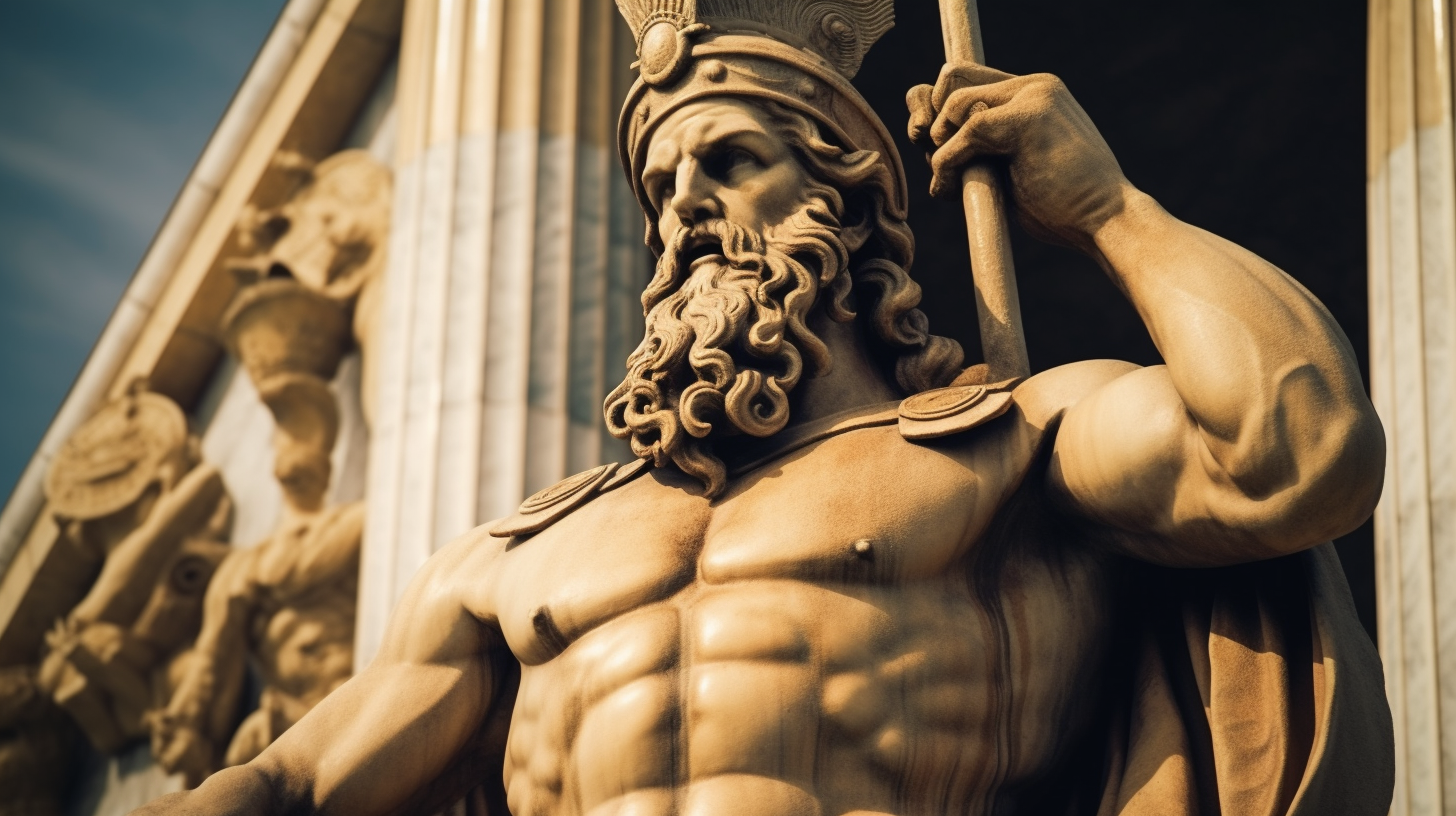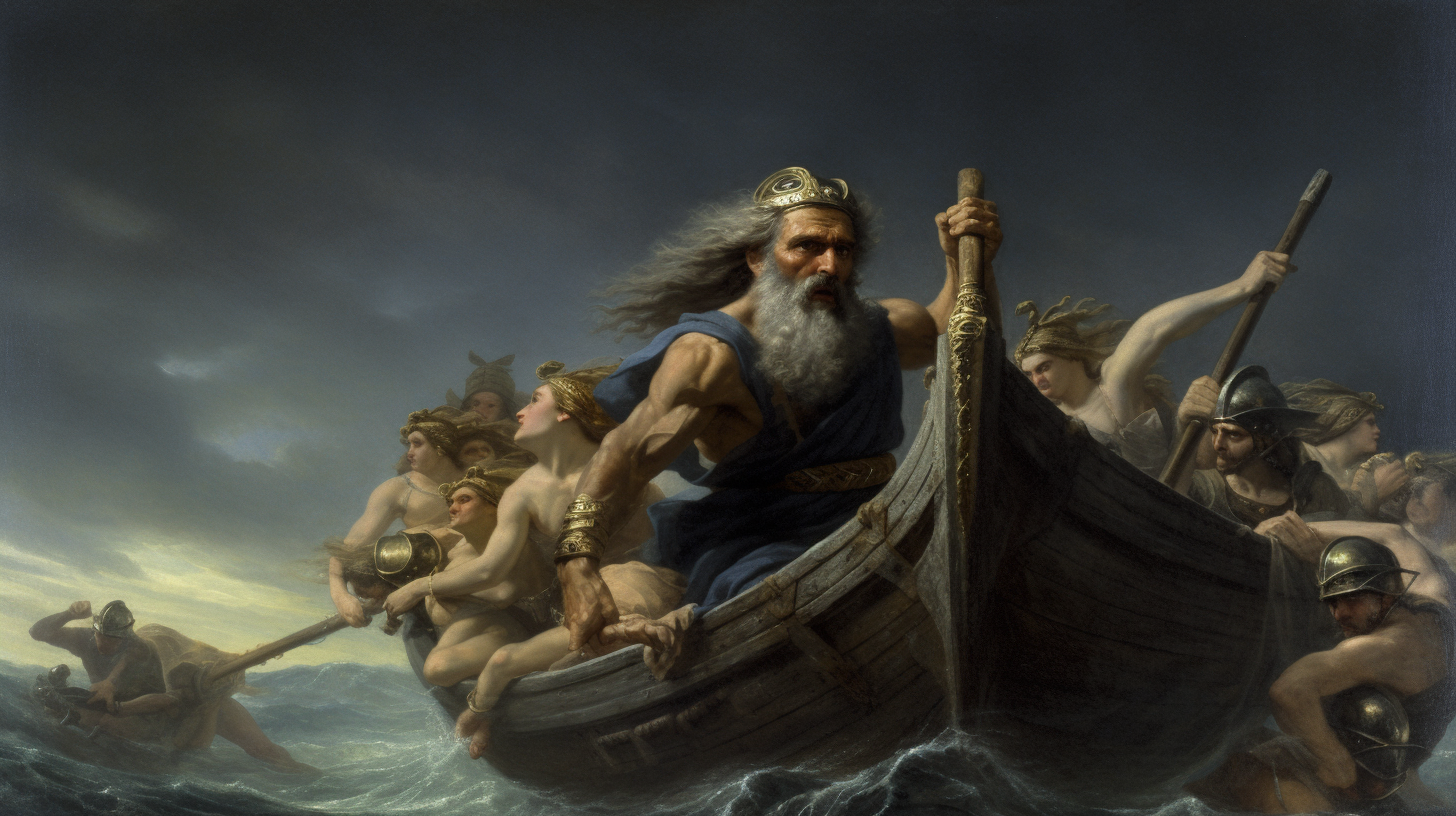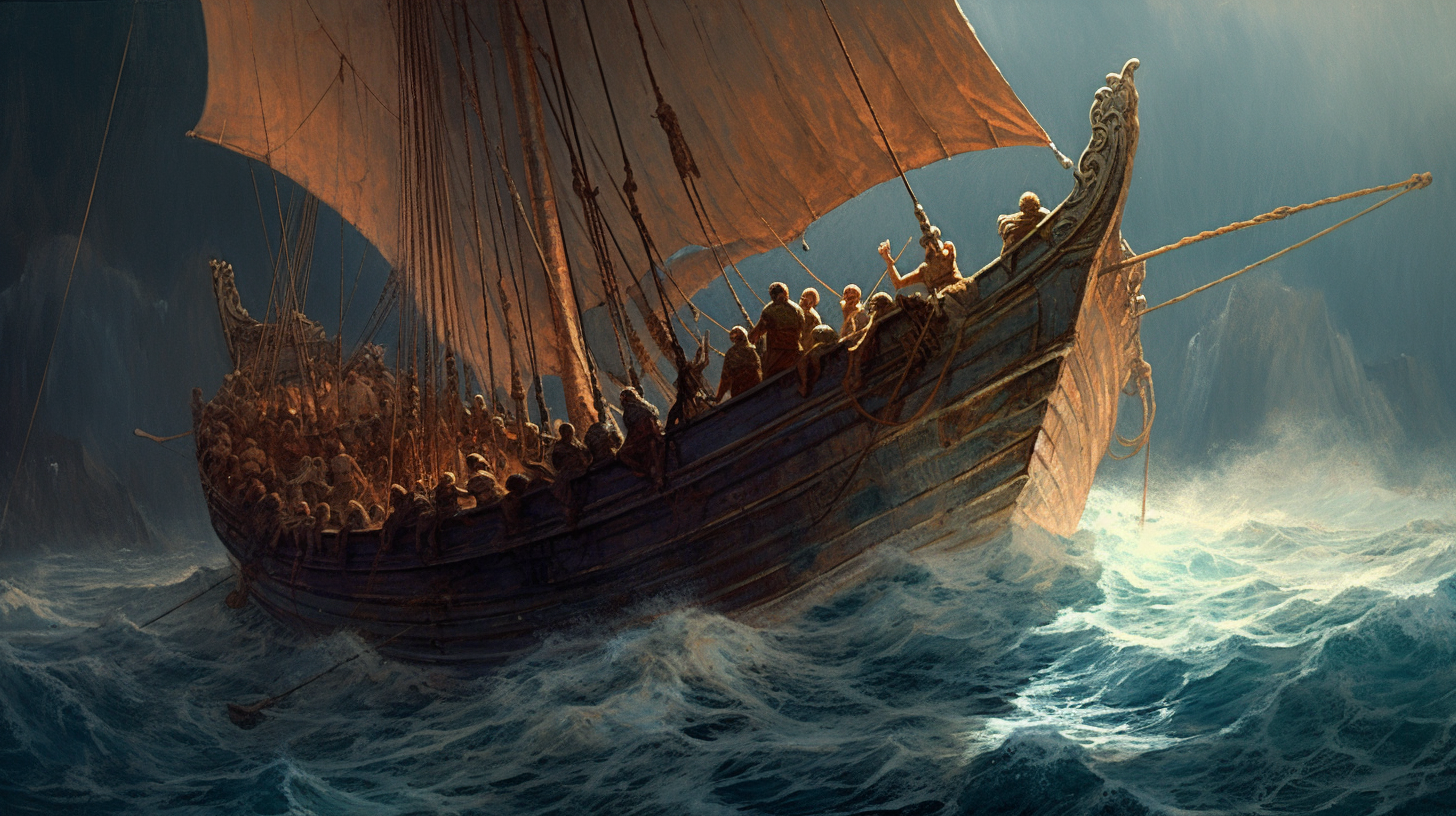Examining the Concept of Fate in Homer's 'The Iliad'

Examining the Concept of Fate in Homer's The Iliad
In contemplating the profound tapestry of Homer's magnum opus, The Iliad, one finds an invitation to delve into the intricate web of fate. This timeless epic, portraying human agency and the interplay between mortals and gods, is a fertile ground for philosophical inquiry. With due respect to the classical tradition and drawing upon the wisdom of ancient thinkers, we shall examine the concept of fate as presented in Homer's work, seeking to weave a coherent understanding devoid of the obvious clichés and simplistic interpretations.
At the heart of The Iliad lies the clash of heroes upon the scarred plains of Troy, a battleground in which the threads of destiny are tightly woven. Homer's narrative masterfully portrays fate as a force beyond mortal control, orchestrating events with an awe-inspiring magnitude. Yet, the poet carefully avoids the explicit use of the word "fate" itself, leaving us to explore its intricate workings through the characters' actions and terms grappling with their destinies.

The heroes, caught in the inescapable embrace of fate, stand as mere pawns on the cosmic chessboard. Their choices and actions, while seemingly significant, are ultimately subject to the unseen currents of destiny. Achilles, consumed by wrath, and Hector, a valiant defender of Troy, are swept along by forces beyond their mortal comprehension. Their struggles against one another, though seemingly driven by personal vendettas, are the manifestations of a larger tapestry of fate.
The gods, too, bear witness to the unfolding drama, their divine power intertwined with the mortal realm. As Homer guides our gaze toward Olympus, we glimpse a celestial pantheon embodying the various facets of human experience. These deities, embodiments of human virtues and vices, exert their influence over the lives of mortals, subtly nudging events and shaping the course of the Trojan War. We see Zeus, the father of gods and men, overseeing the grand stage, while Athena, the embodiment of wisdom and strategy, guides her chosen champion, Achilles, in his heroic endeavours.

Amidst this intricate dance, the question of agency arises. Do mortals genuinely possess free will, or does the celestial loom predetermine their lives? We find ourselves treading upon philosophical grounds that have preoccupied thinkers since immemorial. Fate, as depicted in The Iliad, presents itself as a cosmic force that dictates the outcomes of human endeavours. Yet, lurking beneath the surface, the notion of free will whispers its presence, challenging the deterministic framework.
To approach this difficulty, we turn to the wisdom of the ancients. Aristotle, the great philosopher of the Classics, offers insights into the interplay between fate and free will. He posits that while fate may set the stage, the exercise of virtue, and the cultivation of moral excellence, enables individuals to navigate their predetermined paths with dignity and purpose. Achilles's pursuit of honour and glory epitomizes this Aristotelian ideal, carving his destiny within the constraints of fate.
Our journey through the labyrinth of fate in The Iliad reveals a narrative where the intricate weaving of destiny shapes the lives of mortals and gods alike. It showcases the interplay between cosmic determinism and the exercise of human agency. In its grandeur, Fate serves as a reminder of the limitations of mortal existence, offering a humbling perspective on the human condition.
Our take:
- Fate, as portrayed in "The Iliad," operates as a cosmic force that shapes the destinies of mortals and gods.
- The concept of free will coexist with fate, providing a nuanced understanding of agency in the face of determinism.
- Culturing virtue and moral excellence allows individuals to navigate their predetermined paths with dignity and purpose.
- The interplay between fate and free will in "The Iliad" invites us to contemplate the complexities of the human condition and our place within the cosmic order.
Speculating on the Good (καλός) related to this writing, we find that exploring the concept of fate in "The Iliad" grants us insight into the fragility and resilience of the human spirit. It reminds us of the interconnectedness of our lives and the ever-present forces that shape our existence. By contemplating fate's role, we are encouraged to ponder the mysteries of our agency, acknowledging the virtues and choices that empower us to navigate the intricacies of life's tapestry. Ultimately, the pursuit of understanding fate invites us to reflect upon the complexities of human nature and the purpose of a meaningful and virtuous existence.
Plato Re-Imagined
This course includes 32 lectures covering most of Plato's dialogues and allowing the student to return to something divine. Divinity should resonate with secular and religious leaders alike. I present a compatible approach in my lecture on Consilience.
Also included with this course is a free book. If you pay for the course, you will get a physical copy of the book for free, mailed to your chosen address — anywhere on the planet!
